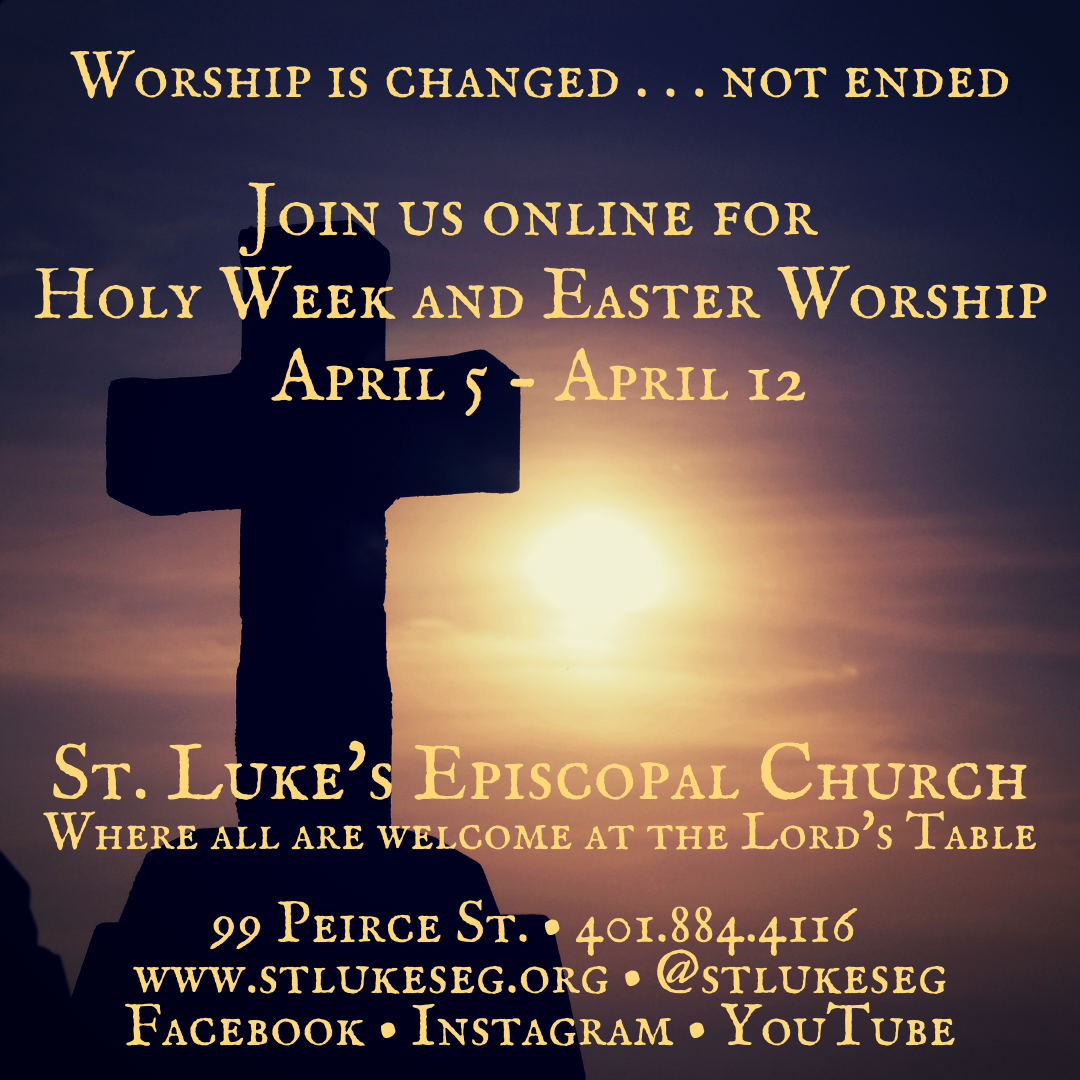Home > Lenten Blog 2021
Experience the unimaginable
April 4, 2021

Acts 10:34-43 or Isaiah 25:6-9 | 1 Corinthians 15:1-11 or Acts 10:34-43
John 20:1-18 or Mark 16:1-8 | Psalm 118:1-2, 14-24
This is the Lord’s doing,
and it is marvellous in our eyes.
– (Psalm 118:23)
When Mother Tanya asked me to write for Easter, I was concerned. The Easter story is wonderful, but also familiar; is the same each year, with only minor differences between the gospels. I adore the anthems and hymns and I probably have Psalm 118 memorized from my years in the choir. Some of the most memorable sermons I’ve heard have been Easter sermons. How could I contribute anything to that?
I can’t promise much. But I did realize quickly that this familiarity goes against the point of Easter. One thing the gospels make clear is how unfamiliar Easter was to the people who first experienced it. It is almost comical, the disciples’ confusion. In John’s gospel, Mary Magdalene mistakes Jesus for the gardener. In Mark’s, Mary Magdalene, Mary the mother of James, and Salome ‘fled from the tomb, for terror and amazement had seized them; and they said nothing to anyone, for they were afraid’ (Mark 16:8). John even specifies that the disciples ‘did not understand the scripture, that he must rise from the dead’ (John 20:9), denying them the sense of prophecy fulfilment found in the Christmas story. The rituals of millennia of Easters now mask the chaos and wonder that was the first Easter. The resurrection was something that none of them could have imagined.
Psalm 118 conveys this sense of wonder: ‘This is the Lord’s doing, and it is marvellous in our eyes’. Marvellous is a word that has lost some of its meaning in modern English. I encounter it often in medieval King Arthur stories, where marvels are used to indicate the appearance of something wholly unexpected, like a knight who’s entirely green. Medieval scholars argued over whether marvels were parts of nature not fully understood by humans or outside of the natural order altogether. Regardless, they were seen as signs that things were not entirely in our control — and that God was working in the world.
I’m not going to ask you to imagine the unimaginable. It is, by definition, impossible. You can only experience it. But I think many of us are feeling like we have experienced it this past year and in the worst way. We’ve lived through losses and terrors we never saw coming. We’ve noticed how much we take for granted, how little is in our control. We are only beginning to see how the world has changed in ways we didn’t know were possible.
The chaos and wonder of Easter tells us that not everything is in our control and not everything is predictable. Even things we believe to be unchangeable, like life and death, are in God’s hands. But Easter shows us the unimaginable in the best way. God can do good in ways that are beyond our understanding. Jesus’ resurrection promises us life better than we could ever guess, nor should we try.
It is impossible to imagine the unimaginable. We can climb to the pinnacle of our imagination, but cannot leap to the heavens on imagination alone. But perhaps resting in the knowledge — in the faith — that God can work these marvels is enough for today.
Happy Easter, St. Luke’s!
Charlotte Palmer


